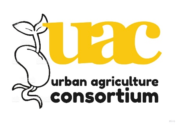Hot off the press! UK Sustainable Food Places Evaluation Report by University of the West of England.
The Covid-19 pandemic, and – more recently – soaring food prices have focused attention on how local action is meeting the challenges of a fractured food system.
We are pleased to share with you this University West of England report showcasing the value and achievements of Local Food Partnerships as they pivoted to respond to a period of national crisis. With a range of case studies from our vibrant network, this report highlights how our members stepped up to play a vital role in the food crisis relief effort, and continue to fill the leadership gap on local food issues in the post pandemic environment.
Written and researched by Matthew Jones, Sarah Hills, and Amy Beardmore, in consultation with Sustainable Food Places members and core team between 2021-2022. Please do read and share with your networks.
Conclusion…
In terms of effectiveness, LFPs tackle the fragmented and siloed operations of the local food systems. Working across complex and cross-boundary environments, LFPs are a unique type of partnership that help coordinate action on dysfunctions and opportunities for change in local food systems. Regarding efficiency, LFPs encourage public, private and third sector agencies to collaborate and share resources. Examples from SFP member areas show how this partnership model provided a powerful way to create efficiencies, eliminate duplication and create innovative solutions. From the standpoint of engagement, LFPs are designed to focus action on the interests of people and environment, ahead of the convenience of providers. This requires having mechanisms for consultation and co-production. LFPs are configured to engage lived experiences and to find shared visions for change. Finally, in terms of equity, LFPs respond to the moral and legal case for promoting equality, diversity and inclusion through their open networks, outreach, and democratic structure. In embracing multiple voices, LFPs act as collectives working for food system leadership at the local level.


